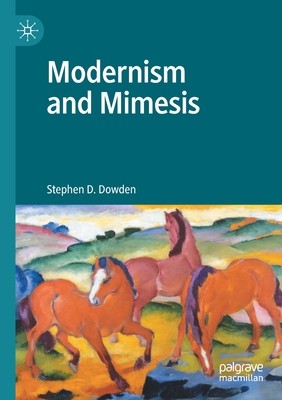
- We will send in 10–14 business days.
- Author: Stephen D Dowden
- Publisher: Palgrave Macmillan
- Year: 2021
- Pages: 296
- ISBN-10: 3030531368
- ISBN-13: 9783030531362
- Format: 14.8 x 21 x 1.6 cm, minkšti viršeliai
- Language: English
- SAVE -10% with code: EXTRA
Reviews
Description
This book offers a bold new view of the way in which modernist fiction, painting, music, and poetry are interlinked. Dowden shows that modernism, contrary to a longstanding view, did not turn away from mimesis. Rather, modernism operates according to a deepened understanding of what mimesis is and how it works, which in turn occasions a fresh look at other related dimensions of the modernist achievement. Modernism is neither "difficult" nor elitist. Instead, it trends toward simplicity, directness, and common culture. Dowden argues that naïveté rather than highbrow sophistication was for the modernists a key artistic principle. He demonstrates that modernism, far from glorifying subjective creativity, directs itself toward healing the split between subject and object. Mimesis closes this gap by resolving representation into play and festivity.
EXTRA 10 % discount with code: EXTRA
The promotion ends in 21d.09:06:27
The discount code is valid when purchasing from 10 €. Discounts do not stack.
- Author: Stephen D Dowden
- Publisher: Palgrave Macmillan
- Year: 2021
- Pages: 296
- ISBN-10: 3030531368
- ISBN-13: 9783030531362
- Format: 14.8 x 21 x 1.6 cm, minkšti viršeliai
- Language: English English
This book offers a bold new view of the way in which modernist fiction, painting, music, and poetry are interlinked. Dowden shows that modernism, contrary to a longstanding view, did not turn away from mimesis. Rather, modernism operates according to a deepened understanding of what mimesis is and how it works, which in turn occasions a fresh look at other related dimensions of the modernist achievement. Modernism is neither "difficult" nor elitist. Instead, it trends toward simplicity, directness, and common culture. Dowden argues that naïveté rather than highbrow sophistication was for the modernists a key artistic principle. He demonstrates that modernism, far from glorifying subjective creativity, directs itself toward healing the split between subject and object. Mimesis closes this gap by resolving representation into play and festivity.


Reviews